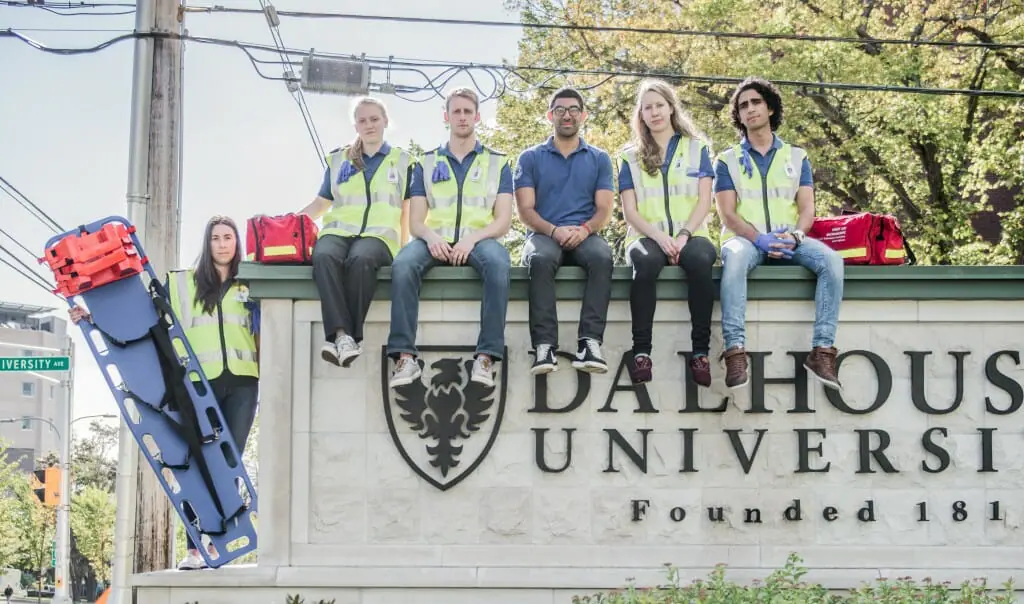Inside the lives of Dal’s very own Baywatch
In the handful of weeks since their inception, the Dalhousie Medical Campus Response Team (MCRT) has already helped 32 individuals at 18 events.
The MCRT has been present at a wide variety of events throughout the first weeks of the school year. Any university event with a high student turnout will likely have five to seven responders working in case of an emergency.
A brand new society for Dal, the MCRT exists on the premise of students helping students. The team consists of 40 volunteer medical responders, all of whom have been trained by St. John Ambulance.
Many of the students on the team are applying to medical school. Others are currently studying nursing or are interested in pursuing a health care career in the future.
“Our biggest challenge so far has been managing the number of people that want to join the team,” says MCRT founder Anthony Saikali. “This is a great challenge to have. We just need to remind students to stay in touch, and put their names forward the application session in the winter.”
Since the team’s first day on Aug. 31, they’ve attended events ranging from Orientation Week’s Black and Gold Dance to the Making Waves for the IWK sailing race.
The presence of the team has already made a noticeable difference to the safety of those at the events.
“We’ve completely eliminated the need for Dal Security and ambulances at all events covered,” says Saikali. “During O-Week, not one ambulance had to be called to an event.”
The MCRT puts a priority on making sure students receive medical attention immediately, instead of making them afraid of being punished for their actions.
“At the Black and Gold Dance, for example, security was looking to kick out some students for being too drunk. This would mean putting them outside by themselves. We arranged for a safe way home for everyone, and made sure that students that had had too much to drink were able to get water and other basic things. It’s about help as opposed to punishment,” says Saikali.
The MCRT also pays attention to mental health on campus.
Working closely with Dal Security and Dal Health to get a sense of potential medical situations, there are now 12 members of the team certified in mental health first aid.
The mental health first aid certification means responders know how to prevent mental health issues from becoming worse by ensuring students know where to seek professional help.
As they continue their work, Saikali emphasizes that even if the MCRT doesn’t need to give medical help at a certain event, their presence is often enough.
“Those nights when we don’t see any casualties, that’s good,” he says. “It’s all about giving that extra level of comfort and confidence to the people there.”


Recent Comments